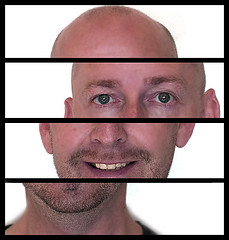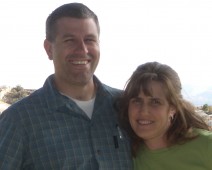The Politically-Induced “Split-Personality” of the Human Soul
I recently experienced an epiphany that generated hope out of a lot of frustration regarding the contending factions in American and world politics, and within my own heart.
I was discussing Adam Smith’s The Theory of Moral Sentiments with a colleague, in which Smith (according to my discussant) puts forth the idea that it is easier for human beings to be worried about right and wrong than it is for us to worry about the welfare of our neighbor.
I interjected, stating that this is true for conservatives, but that the opposite is true for liberals.
I then sat back amazed at the thought that we both had, almost instantaneously, that these two concepts need not be separated, and in fact belong together.
I have stated in the past that:
“the role of a statesmen is to help people that love God to learn to love their neighbor and to help people who love their neighbor to learn to love God.”
However, I had never realized that this division between those who were more concerned with the right and wrong way to govern and those who were more focused on the necessity to care for the well being of humankind was a false and pernicious split of the divine nature of the human soul.
 What caused this split? Does the division naturally exist, or is it something passively imposed upon us by society, environment, upbringing, etc.? Or is it an active process in that we choose to deny a certain portion of ourselves?
What caused this split? Does the division naturally exist, or is it something passively imposed upon us by society, environment, upbringing, etc.? Or is it an active process in that we choose to deny a certain portion of ourselves?
It’s likely that we are somewhat naturally compartmentalized (Jefferson uses the argument between the Head and the Heart to demonstrate his internal strife) to allow us to deal effectively with things of the heart (the welfare of others) and the cold, hard facts of the head (what is wrong and what is right).
However, the environment which we are exposed to will generally accentuate one compartment over the other.
Environmental exposure is not sufficient to explain the entire situation.
Human choice also plays an important role in moving us to predominately concern ourselves with either the importance of determining wrong and right or the importance of the welfare of our neighbor.
As we understand this dichotomy, we can begin to see the perspective of others without falling prey to the common, unhelpful tendency to characterize those who promote a different portion of their soul as “cold-blooded, heartless conservatives” or “bleeding-heart liberals” and “do-gooders” (said with the patent EIB network mocking sneer).
In order to solve the problems we face as human beings with the determination and desire to promote freedom and prosperity and goodness, we must heal this rift within us and in society.
Of course, most of us will still retain a residue of the predominate portion, but our determination must be to let go of standard, tired, staid definitions and categories and embrace the whole human soul.
Classical literature plays a powerful role in this transition. Examples from the moral dilemmas discussed by Victor Hugo, Charles Dickens, Fyodor Dostoevsky, Harriet Beecher Stowe, and Orson Scott Card (to name a few of my favorites) help us to ask the hard questions of ourselves and help us bring unity to our soul.
Another, more important, source of healing is to recognize our dependence on God and His emphasis on law and love, justice and mercy. He knows our soul and our individual make-up, and how to bridge the divide and reconcile in us the sadly split portions.
After recognizing one’s dependence on God, the next step in the healing process is to pick up a literature classic and engage the author in the conversation and, with profound introspection, ask “How can I become a more complete human being?”
Without this wholeness, our statesmanship and our pursuit of the cause of liberty will not only ring hollow, but it will come up short.
****************
 Mike Wilson received his B.S. degree in Chemistry from Brigham Young University and pursued graduate work at the University of California, San Diego, where he earned a M.S. degree in Biomedical Sciences prior to obtaining his M.D. at the UCSD School of Medicine.
Mike Wilson received his B.S. degree in Chemistry from Brigham Young University and pursued graduate work at the University of California, San Diego, where he earned a M.S. degree in Biomedical Sciences prior to obtaining his M.D. at the UCSD School of Medicine.
He lives in Cedar City, Utah with his wife Jenni and their six children and practices emergency medicine in St. George, Utah while working on a Ph.D. in Constitutional Law at George Wythe University. He is also an Associate Mentor at GWU.
Mike’s passion is promoting idea that the common man has power and capacity to affect grand change in the world through true principles of love, goodness, and virtue. Because of his Jeffersonian trust in the common man, he considers himself a “little d” democrat (an ideal, not a political party).
He believes that the cause of liberty is founded essentially in widespread powerful education, checks on power, and promotion of virtue and goodness. Force is never a real solution to problems for Mike and the statesman’s role is to understand the ideal, see where society is, and then put himself in a position to move society in the direction of the ideal.






Why only a reference to conservative Rush Limbaugh, and nothing form the other side.You could certainly have found something. Is this your bias showing through? Just wondering.
Debbie,
Mostly it’s the right-wing talk radio that I’m exposed to most. I don’t partake of much media (mainstream or otherwise) because of the above stated points. I think I do address the angry left with the “cold-blooded heartless conservatives” comment.
But yeah, I guess Rush’s arrogance does bother me a bit.